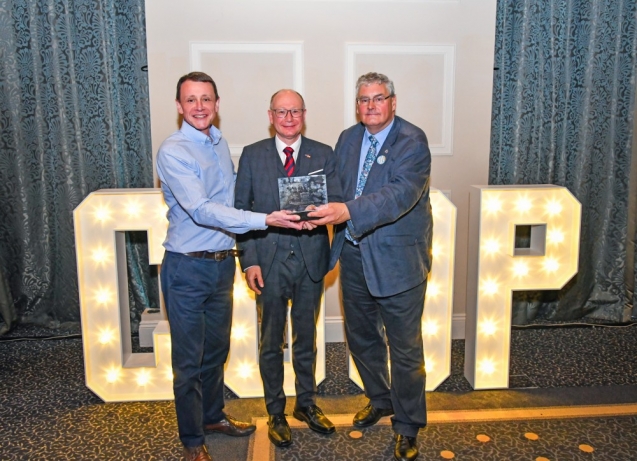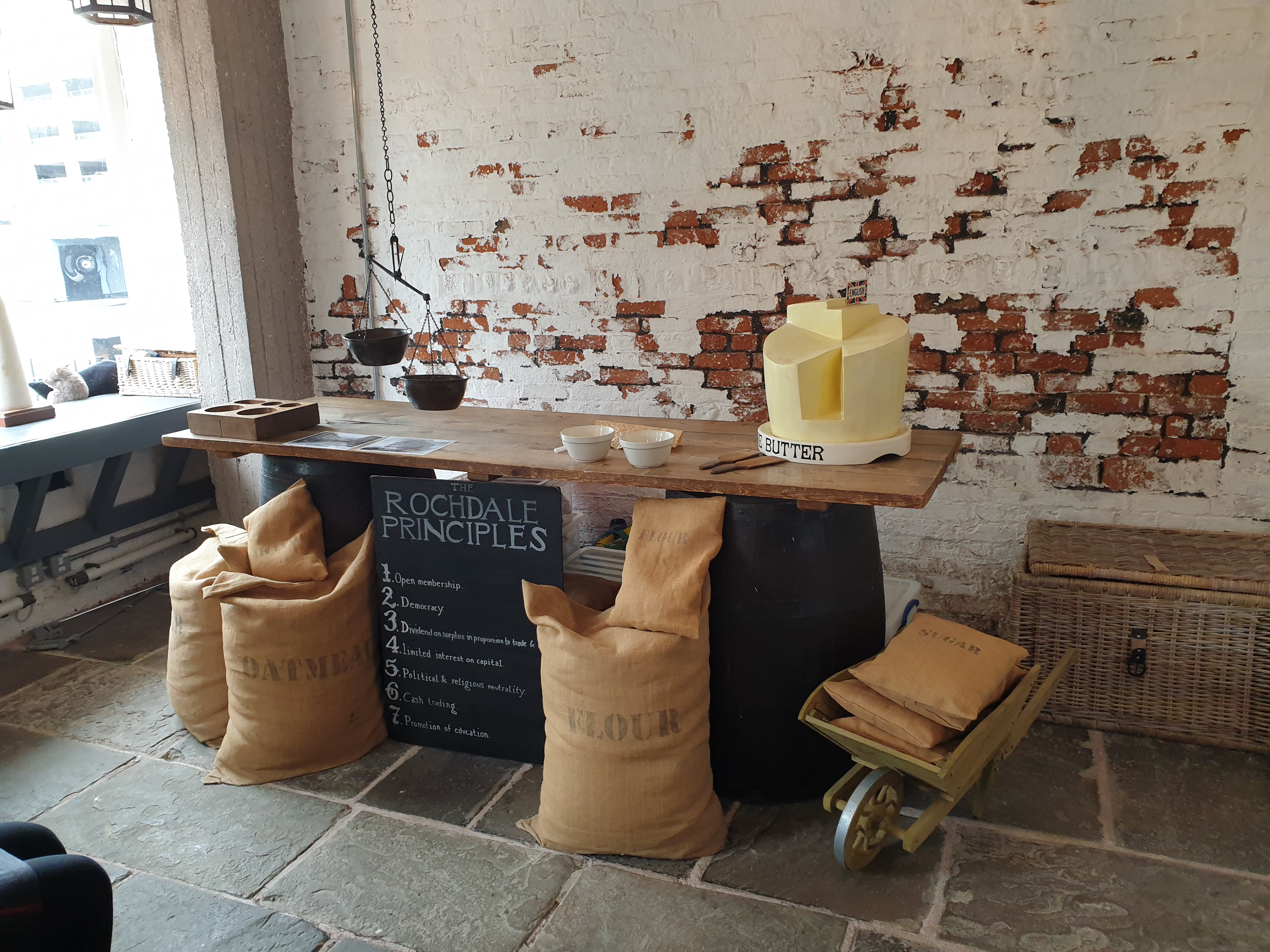Euro Coop Awards Co-operatives UK & The Co-operative Group
08.07.2019 14:24:21

At the UK Co-op Congress, held in Manchester on 21-22 June 2019, under the theme of "Building Co-operative Places", Euro Coop honoured the UK co-operative movement in recognition of the 175th Anniversary of the Rochdale Pioneers. The award was received by Nick Matthews - Chair of Co-operatives UK, and Nick Crofts - President of The Co-operative Group's Members' Council.

1844 is widely considered as the beginning of consumer co-operatives and the global co-op movement, as it was then that the Rochdale Pioneers opened their store on Toad Lane. Their foundation served as a model for many other initiatives throughout the United Kingdom, Europe and the world, which ultimately formed today’s co-op movement.
The special thing about that store in 1844 was not the invention of the co-operative idea, but the distinct model the co-op utilized as its foundation. It is well-known that even before the Rochdale Pioneers there were many attempts to establish consumer co-operatives.
Robert Owen, who was very intensively involved in alleviating the effects of industrialization on the workers by proposing co-operative solutions, was a significant mastermind of this idea. These concepts were taken up by Dr. William King, who was the editor of the journal "The Co-operator" between 1828 and 1830. Consequently, the ideas spread resulting in numerous attempts at establishing consumer co-operatives – estimates put the figure around 300, but these failed. So came around the first attempt by 28 bold men from Rochdale.
The founders of the Toad Lane store are rightly considered pioneers because they managed to combine their business idea with the principles and values by being mindful of practices that work and dropping the ones proven unsuccessful. The original rules of conduct as published in the Pioneers’ annual almanac were:
- That capital should be of their own providing and bear a fixed rate of interest.
- That only the purest provisions procurable should be supplied to members.
- That full weight and measure should be given.
- That market prices should be charged and no credit given nor asked.
- That profits should be divided pro rata upon the amount of purchases made by each member.
- That the principle of ‘one member one vote’ should obtain in government and the equality of the sexes in membership.
- That the management should be in the hands of officers and committee elected periodically.
- That a definite percentage of profits should be allotted to education.
- That frequent statements and balance sheets should be presented to members.
These ideas were spread by Jacob Holyoake, the historian of the Rochdale Pioneers, in his writings. In 1857, he published a series of articles in the Daily News, which were later summarized in the book "Self Help by the People: The History of the Rochdale Pioneers". This book was translated into French, German, Russian and other languages in the 1860s and inspired many people around the globe to follow in the footsteps of the Rochdale Pioneers.
The Values and Principles embraced by today’s worldwide co-operative movement have evolved from the ideals of the early co-operators of the XVIII and XIX centuries and finally summarized in seven principles. These were officially recognized as the co-operative principles by the International Co-operative Alliance and embodied in the Statement on the Co-operative Identity published in 1937:
1. Voluntary and open membership
2. Democratic member control
3. Member economic participation
4. Autonomy and independence
5. Education, training and information
6. Co-operation among co-operatives
7. Concern for the community
These principles continue to guide the work of co-operatives around the world, regardless of the sector of the economy or region in which they operate. At the time, the founders really did pioneer work with their ideas, which established the basis for the modern understanding of the co-operative idea. Even today, the Rochdale Pioneers with their values and principles still inspire people to use the co-operative idea when they take care of their needs through common self-help.
Co-operatives UK and The Co-operative Group not only preserve the heritage of the Rochdale Pioneers, but also work to ensure that this idea will continue to inspire people in the future.
Euro Coop has therefore decided, in recognition of the achievements of the Rochdale Pioneers, to show our high appreciation and gratitude to both organisations, representing the co-operative movement in the UK, for their invaluable work.
Latest Co-op Distinctiveness news

EU Commission Presents New Five-Year Consumer Policy Roadmap
The EU Commission has unveiled its new five-year roadmap for consumer policy, outlining...

Euro Coop Co-Signs Joint Position Paper on Omnibus I
Euro Coop, together with CNA , Legacoop and ECCO , has released a joint position paper in...

Euro Coop is seeking an Erasmus+ Policy Intern
Euro Coop – The European Community of Consumer Co-operatives is seeking a Policy Intern...
Latest Co-op Distinctiveness stories

Major rebranding for UK's Co-op
The Co-operative Group is undergoing major changes in its rebranding. Revival of the 1968 visual...

